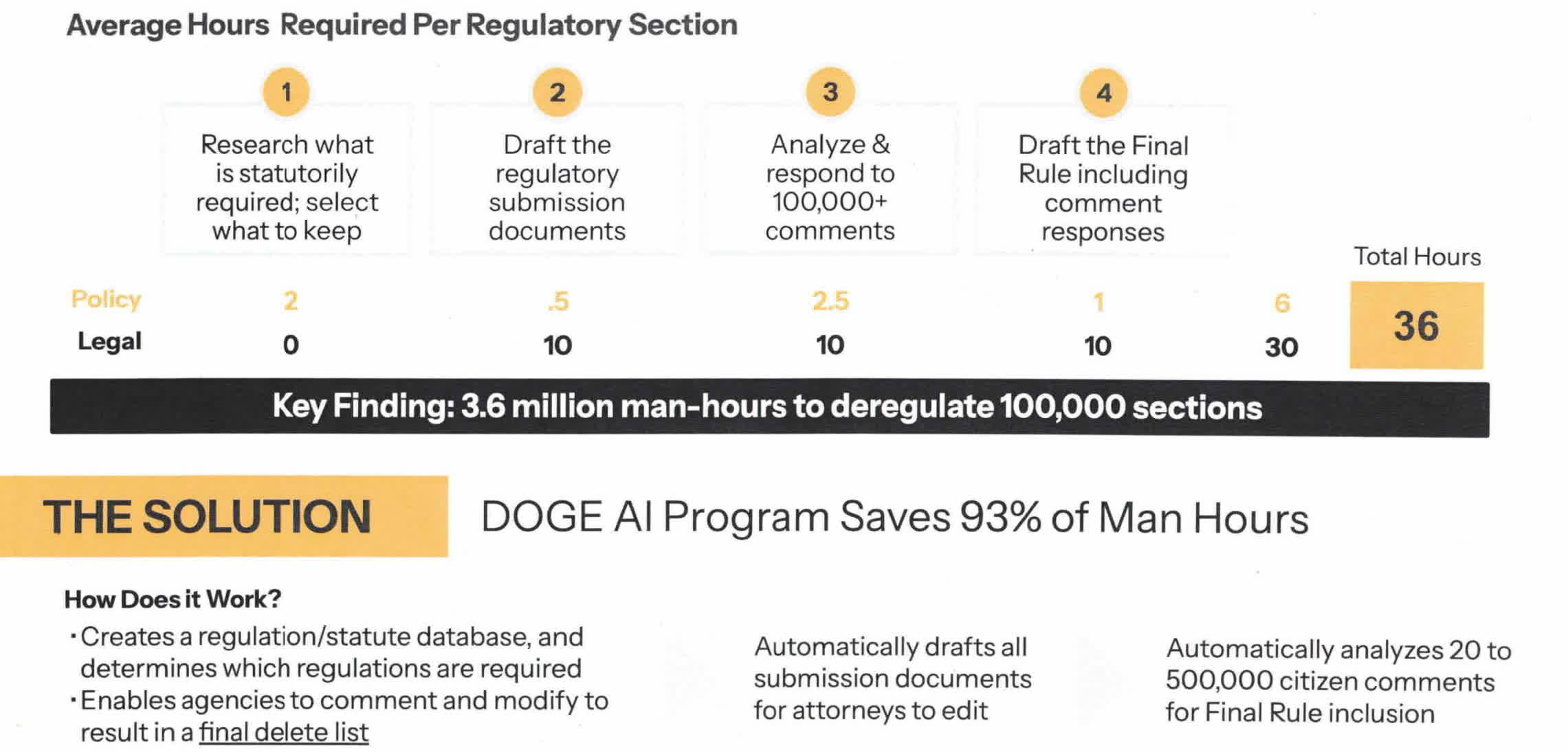A hot potato: Elon Musk may have long departed the Department of Government Efficiency, but DOGE is still causing controversy. A new report claims that the agency is using a new artificial intelligence tool to create a list of federal regulations that will be deleted. The goal is for 50% of regulations to be eliminated before the anniversary of President Trump's inauguration.
The Doge AI Deregulation Decision Tool will be analyzing around 200,000 federal regulations, according to the Washington Post, which cites documents it obtained and four government officials.
According to a PowerPoint presentation outlining the plans, around 100,000 of these rules would be deemed worthy of deletion.
The tool has already been used to make decisions on 1,083 regulatory sections at the Department of Housing and Urban Development (HUD) in under two weeks. Three employees from the agency said it has been used recently to review hundreds, if not more than 1,000, lines of regulation.
There are dangers that come with using AI for these sorts of tasks, of course. One HUD employee said that the tool made several errors, and it claimed those who had drafted various agency regulations misunderstood the law in several places. In reality, the AI had iteself misunderstood the complex language.
The system has also been used by the Consumer Financial Protection Bureau to write "100% of deregulations."
An extract from the PowerPoint presentation
The presentation includes a timeline in which agencies have until September 1 to use the tool to create their own list of regulations for erasure. After which, "DOGE will roll-up a delete list of 50% of all Federal Regulations (100k Regulatory Rules)."
One of Trump's campaign promises was an aggressive reduction in regulations, which he said were driving up the cost of goods. DOGE's presentation claims that complying with these rules costs $3.1 trillion per year, and that using the AI tool to slash 50% of all regulations will save $1.5 trillion annually, unlock $600 billion in investment, increase US sales revenue by $1.1 trillion, and cut the federal budget by $85 billion.
When asked about the use of AI for the deregulation process, White House spokesperson Harrison Fields said "all options are being explored" to achieve Trump's promises. He added that the work was in the early stages and "no single plan has been approved or green-lit."
DOGE has embraced AI since the agency's inception. It announced an "AI-first" strategy in February, started embedding the technology across multiple government brances in March, and rolled out its custom AI chatbot (often referred to as GSAi) to 1,500 GSA employees in March.
I'm officially out of that office.
– Edward Coristine (@EdwardCoristine) June 24, 2025
Can't say too much yet, Appreciate everyone who's reached out. Feels good to finally breathe again… Time to shift priorities and run a meatballs coin scam.
but I'll make a post explaining what happened soon.#Bigballsout
DOGE has not only proved controversial over its actions – and the fact it had been led by Elon Musk – but also its tendency to hire very young employees. One of these was Edward "Big Balls" Coristine, who has what one could generously call a colorful history. Coristine left DOGE last month.
DOGE's AI tool misreads law, still tasked with deleting half of US regulations

